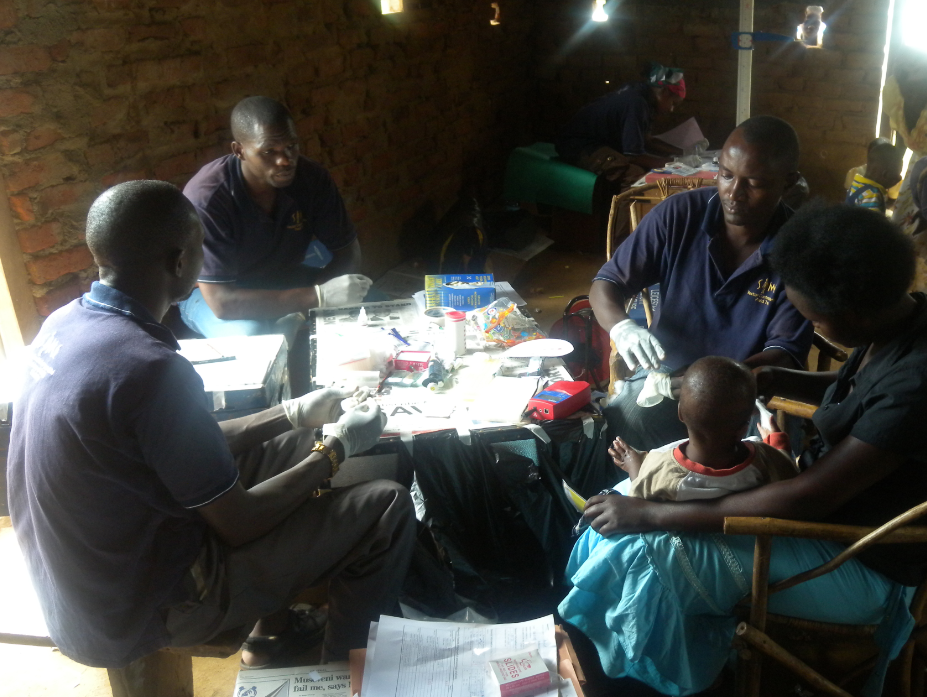
A new study confirms further reasons for concern with the control of malaria in Uganda.
A longitudinal cohort study of multi-species malaria infections in mothers and children in Uganda has revealed there to be both persistent and increasing numbers of parasites in the blood, despite regular access to frontline antimalarial treatments.
The Schistosomiasis in Mothers and Infants (SIMI) study, funded by the Wellcome Trust and headed by LSTM’s Professor Russell Stothard, has published its penultimate paper in the Journal of Infectious Diseases this month. The manuscript reports on a molecular analysis of the infection dynamics of multi-species malaria within the mother and child cohort. This analysis was achieved by laboratory investigations carried out by LSTM’s Research Centre for Drugs and Diagnostics (RCDD) inspecting the dried-blood-spot archive by real-time PCR methods and was in collaboration with Uganda’s Vector Control Division, Ministry of Health.
Using a novel molecular diagnostics approach, the dynamics of Plasmodium falciparum, the parasite causing the most serious form of malaria alongside those of P. ovale and P. malariae, were followed. The study took place over a period of eighteen months during which mothers and children received repeated artemether combination treatment (ACT) when needed, as well as, praziquantel treatment to manage intestinal schistosomiasis. The study’s key finding demonstrated both persistent and increasing parasitaemia of certain species of Plasmodium in children and that non-falciparum infections also had tangible clinical significance in terms of splenomegaly. The SIMI study had previously shown concerns in the performance of ACT in the management of P. falciparum-malaria were justified.
Professor Stothard said: “Although the SIMI study took place in a region of Uganda where the majority of people are infected with malaria, we were very surprised by our findings especially in the increase of P. malariae, which has been largely overlooked locally and rarely monitored officially. Taken together we need better disease diagnostics deployed in the field as it is easy to lose sight of those minor species of malaria within the current public health spotlight.”
Previous and related work of the Group can be found here